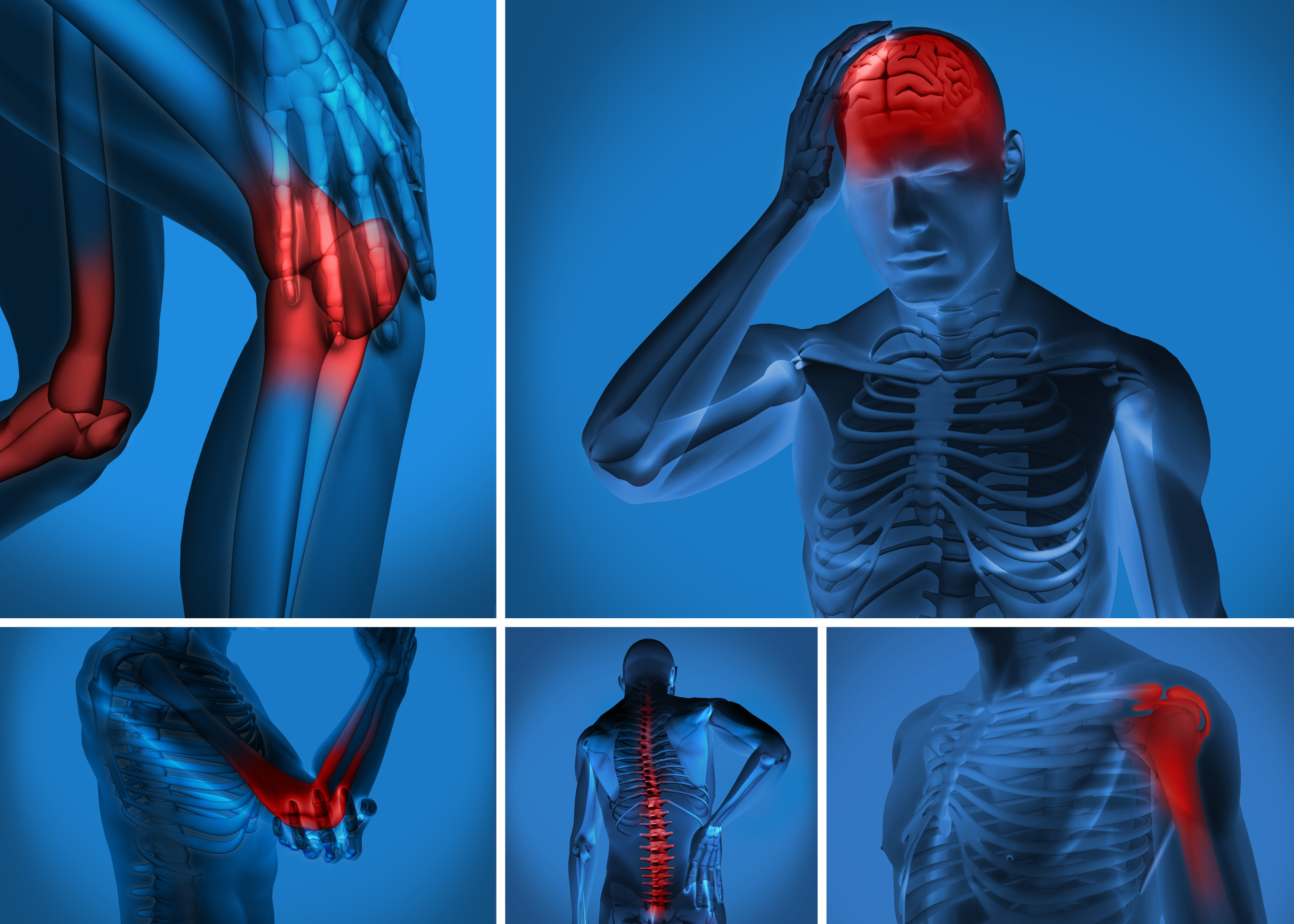Six very painful conditions—and how to avoid them
Throb, sting, ache and burn are just some of the many words to describe pain. No matter how it is described, pain is the sensation felt when the nerves send signals along the spinal cord to the brain. A 2010 study about pain estimated that the annual total financial cost to society for pain, including both health care costs and days of work missed, ranges between $560 to $635 billion. Taking steps to avoid some of life’s most painful conditions is prudent. Here are six painful conditions and ways to reduce the risk of developing them.
Shingles
Chicken pox is caused by the varicella-zoster virus, which becomes dormant after the disease passes. However, this virus can become reactivated later in life and cause a very painful, blistering rash. One in three people will get shingles at some point in their lives and can experience pain for weeks or even months. To reduce your chances of getting shingles, ask your doctor for the shingles vaccine known as Shingrix which has a 90 percent protection rate. If you do get the shingles, see your doctor within three days for a antiviral medication that can reduce the severity of the rash.
Gout
Uric acid normally dissolves in the blood but in some people, the uric acid builds up and causes sharp crystals to form in a joint. Gout is considered a form of inflammatory arthritis and commonly forms in the big toe. The attack can be sudden, often occurring in the middle of the night. The pain can last up to 14 days and can reoccur. To reduce the chances of developing gout, be sure to drink plenty of fluids, limit alcohol, choose low fat dairy products and control your weight.
Kidney stones
As the name implies, kidney stones are hard lumps of minerals that can form inside your kidneys and affect parts of your urinary tract. The more concentrated urine is, the more likely is it that crystals will form and group into a kidney stone. Passing these stones can cause significant pain. The key to keeping these crystals from forming is to dilute your urine by drinking plenty of fluids each day.
Migraines
These painful headaches can last from four to 72 hours and can be completely incapacitating. Migraines are an inherited brain disorder that can be triggered by a variety of things including stress, lack of sleep, bright lights or overuse of pain medication. Nausea often accompanies the head pain. Avoiding the triggers can reduce the onset of migraines and there are some medications available to reduce the frequency.
Sciatica
The sciatic nerve is a large nerve that runs from the lower back and down each leg. If this nerve becomes pinched, the pain can radiate from your lower back down to the back of your leg along your thigh and calf. This pain can be mild but it can also be a sharp burning pain or even feel like a shock. Usually, only one side of the body is affected. To reduce the changes of developing this painful condition, do exercises which strengthen your back and keep your posture straight. Support your lower back when sitting and don’t stand too long without changing positions. When lifting objects, be sure to keep the back straight and bend only at the knees. Do not lift and twist at the same time. If something is very heavy, get help rather than lifting it alone.
Slipped disk
The disks in the spine can be described like jelly donuts with a soft center and a stronger shell. When there is a tear in the shell, some of the center “jelly” can leak out. This is known as a slipped disk or herniated disk. The pain caused by this action can be severe and may cause a numb or weak feeling in an arm or leg. The older you become, the more fragile the disks. Use proper lifting techniques when moving things. Do exercises to keep the back strong and straight. Keep a healthy weight to reduce strain on your back.
Pain following medical procedures or injury
Not all pain can be avoided with diet or exercise. Pain that occurs following medical procedures like a knee replacement or a broken hip repair is part of the recovery process. Managing this pain can be challenging for even the most determined patient. This is why some people wisely choose to recover in a short-term care facility where there are medical staff who can manage pain and therapists who know what needs to be done to reduce pain.
Whitehall of Deerfield is one of the most effective and luxurious options for short term care on the North Shore. Whitehall of Deerfield has consistently been given Medicare’s highest rating in its five-star quality rating system of rehabilitation facilities and is accredited by The Joint Commission, the nation’s leading and most respected health care accrediting authority. You can depend upon receiving quality care at Whitehall of Deerfield by experts who can effectively address pain issues with a variety of approaches from medications to therapy.
In addition, guests enjoy well-appointed rooms with many amenities including high-speed wireless internet, daily delivery of Starbucks coffee and newspaper and dozens of cable channels with a 24-hour channel of newly released movies. Guests select meals from menus and enjoy them either in attractive dining rooms or in the privacy of their own guest rooms. There are also complimentary fresh-baked treats and ice cream available at an on-site ice cream parlor and coffee shop. Guests’ needs are addressed by a caring and compassionate staff who are focused on each guest’s recovery. Friends and family will also find valet parking when they come to visit and an attractively furnished lounge is available for spending time together.
For superior post-hospital care in a luxurious setting, choose Whitehall of Deerfield. To learn more or schedule a tour, visit whitehallofdeerfield.com or call 847-945-4600.

